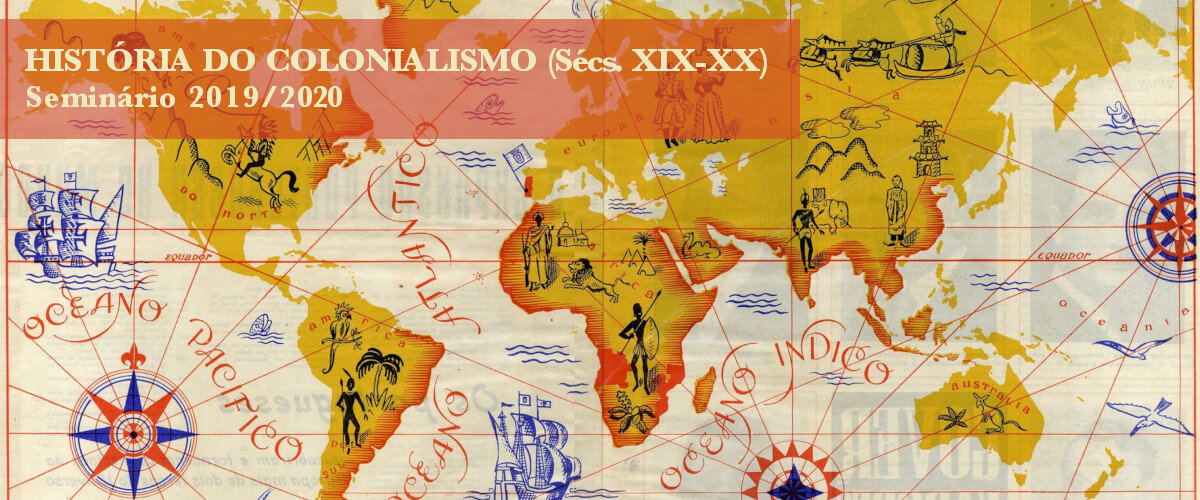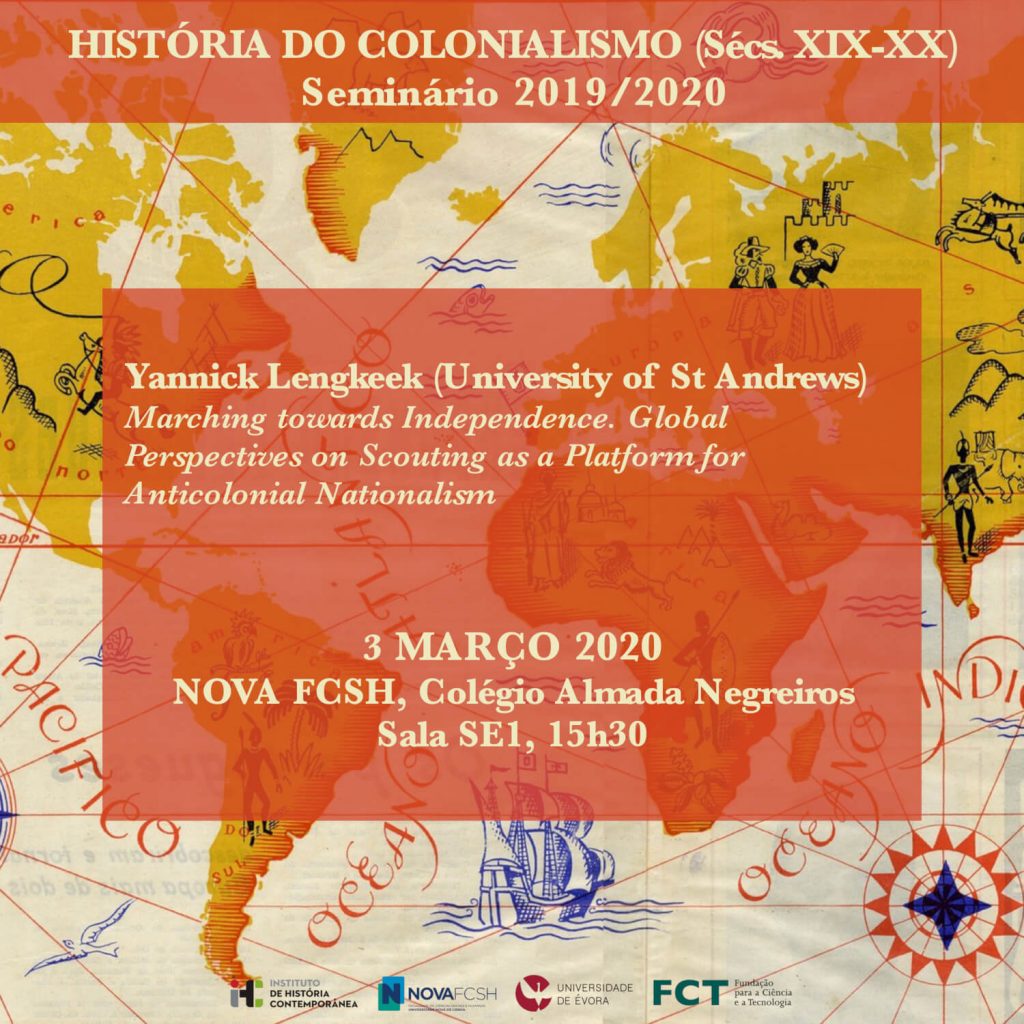march, 2020

Event Details
Third session of the Research Seminar on the History of Colonialism (19th- and 20th-Centuries), dedicated to the research on the colonial past and its historical legacies. The seminar will be a
more
Event Details
Third session of the Research Seminar on the History of Colonialism (19th- and 20th-Centuries), dedicated to the research on the colonial past and its historical legacies.
The seminar will be a relaxed discussion forum, providing a welcoming environment for speakers to present their research at any stage of completion with a focus on the history of colonialism, decolonisation, and post-colonial societies in the nineteenth and twentieth centuries.
The first edition will run between January and June 2020.
Each session will feature a single presentation (between 20 and 30 minutes) or two speakers presenting on related topics (40 minutes both), which will be followed by Q&A.
It is organised by the IHC’s Thematic Line “Colonialism, Anti-Colonialism, and Post-Colonialism: Rethinking Empires and their Aftermaths”.
>> Full Programme 2020 (PDF) <<
3rd Session:
Yannick Lengkeek (University of St Andrews): Marching towards Independence. Global Perspectives on Scouting as a Platform for Anticolonial Nationalism
This presentation aims to explore the nexus between scouting and anticolonial discourses and practices within a global framework. Based on Benedict Anderson’s important observation that anticolonial nationalists usually presented their struggles as a form of intergenerational revolt and celebrated the idea of youth in a much more radical way than nationalists in nineteenth century Europe, I seek to explain the global proliferation of (militaristic) youth organisations among nationalist movements.
Taking a particularly close look at my own field of expertise, Indonesia, as well as the Hindutva movement in India and other case studies such as Egypt, the Middle East, and China, my presentation argues that we need to pay closer attention to the centrality of youth mobilization and activism in the context of anticolonial nationalism. Important elements in the genesis of anticolonial youth activism include, above all else, Robert Baden-Powell’s Boy Scout Movement and the organisations it inspired, such as the scout groups in Fascist Italy and Nazi Germany or the various pioneer movements in Soviet Russia and beyond.
In a first step, this presentation attempts to link hitherto insular historiographical debates and case studies on a variety of anticolonial youth organisations. Afterwards, my work will zoom in on two cases – Indonesia and India – to give the audience an idea of the types of sources historians can use to approach these organisations. Finally, I will conclude with a couple of general observations and hypotheses about the nature and scope of anticolonial youth organisations. Central issues that lie at the heart of this presentation include, but are not limited to, the following aspects:
– The centrality of youth in anticolonial ideology and practice
– Scouting as a role-model for engineering social change in Europe and its colonies, thus cutting across dichotomies such as ‘centre’ and ‘periphery’ and instead exploring the hype around youth mobilization and militarization as a global trend
– Continuities and long-term trends: why are militaristic scout organisations still a prominent characteristic of so many former colonies?
– Unexplored or neglected case studies, including the former Portuguese colonies in Asia and Africa
Time
(Tuesday) 3:30 pm - 4:30 pm
Organizer
Institute of Contemporary History — NOVA School of Social Sciences and Humanitiescomunicacao.ihc@fcsh.unl.pt Avenida de Berna, 26C - 1069-061 Lisbon

